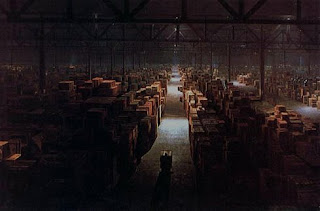 After my last couple of posts on the dangers of nuclear waste and growing wind power sector, I received more than a couple of emails from readers ranging from fairly positive to the predictable “no, we can’t, we can’t, we can’t” from those who’s thoughts continue to float in an unmarked antiquated box somewhere.
After my last couple of posts on the dangers of nuclear waste and growing wind power sector, I received more than a couple of emails from readers ranging from fairly positive to the predictable “no, we can’t, we can’t, we can’t” from those who’s thoughts continue to float in an unmarked antiquated box somewhere.
With Ontario-based Bruce Power announcing that over 2,700 jobs would be created with the construction of a nuclear power plant in Alberta’s Peace Country, I thought it would be interesting to take a look at a county that is rejecting nuclear energy, and as a result has seen its renewable energy sector flourish.
In 2002, German legislators turned their backs on nuclear power when they passed of the “Act on the structured phase-out of the utilisation of nuclear energy for the commercial generation of electricity.” Since taking power in 2005, Chancellor Angela Merkel‘s government is continuing plans to phase out nuclear power by 2020.
German renewable energy sector jobs almost doubled from 160,500 in 2004 to 249,300 in 2007, leading some to suggest that as many as 400,000 jobs could exist in this sector by 2020 (over 100,000 more than some previous studies had predicted). In 2007, renewable energy sources in Germany generated 8.5% of that country’s total energy consumption, and saved 114 million tons in carbon dioxide.
Sigmar Gabriel, German Minister for Environment, Nature Conservation, and Nuclear Safety was quoted as saying:
“The systematic expansion of renewable energy is not only good from the environmental and climate policy point of view but also for innovation, growth and employment in Germany.”
Gabriel has also announced that Germany, the world’s sixth largest greenhouse gas emitter, will expand its environmentally friendly energy production target to 27% by 2020.
A recent NASA report (h/t DSB) has reported that Canada’s coastal areas have the wind power density to produced intense amounts of wind energy through offshore wind farms. The construction of offshore coastal wind farms on Canada’s coasts would be a smarter way to meet our energy needs (and maybe make a couple bucks after selling surplus energy south of the 49th parallel).
As our provincial government continues its rosey-eyed high school-style relationship with nuclear power, we as citizens have a responsibility to understand that there are plenty ways to moving forward in filling our energy needs beyond nuclear power. There is a growing need for a larger energy supply, but we have a responsibility to ensure that the effects of our developments do not adversely affect the lives and well-being of the current population, as well as generations to come.
Maybe having antiquated thinkers drive our debate isn’t the smartest idea in the first place?
